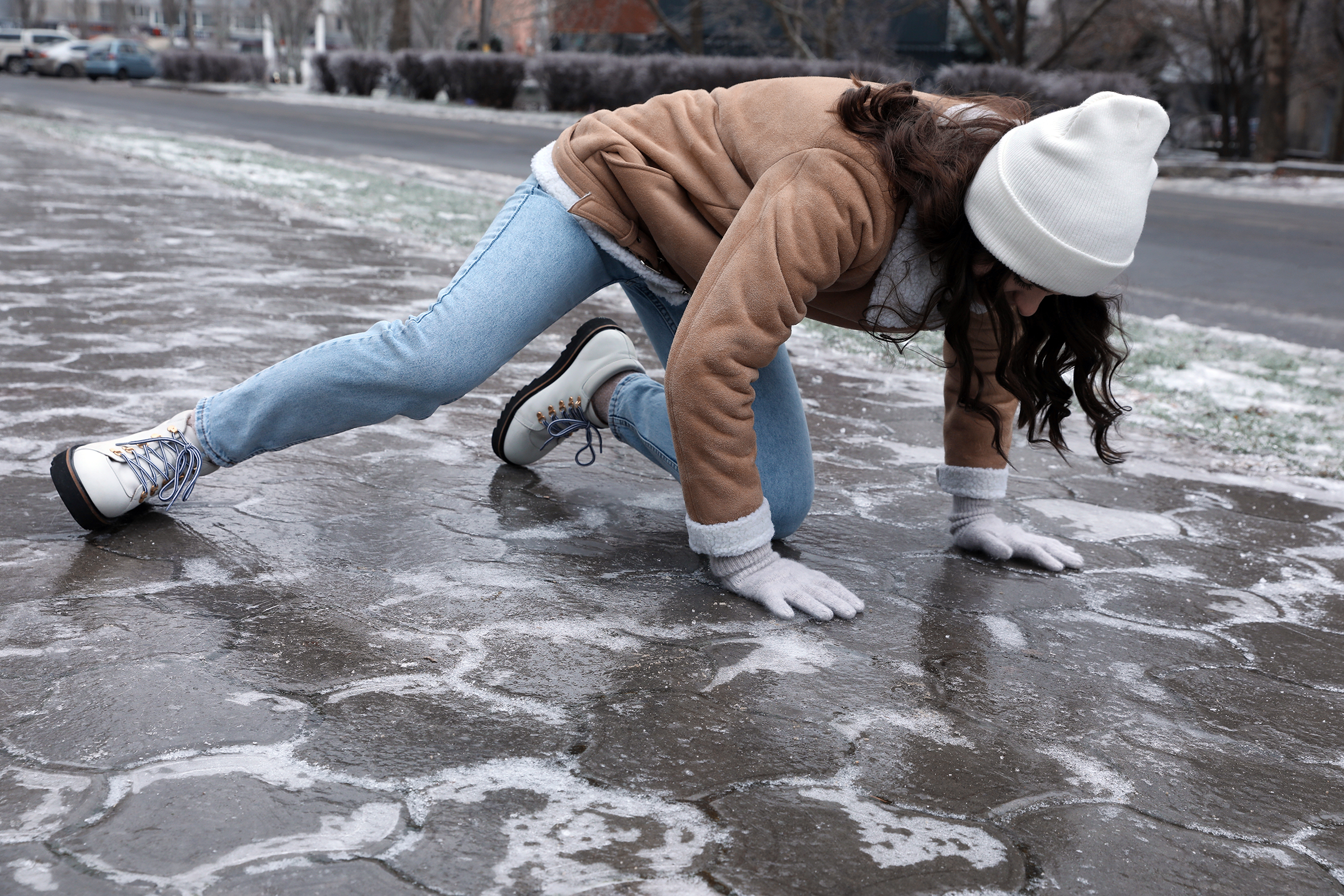As winter casts its frosty veil over neighborhoods and cities, snow removal becomes a necessity, transforming sidewalks and driveways into treacherous terrain. While snow removal companies play a crucial role in ensuring safe passage during winter, they often find themselves entangled in legal battles. But why? Let’s shovel through the layers of liability and explore the reasons behind these lawsuits.
A slip and fall on a property you are contracted to perform winter services on is every snow removal company’s worst nightmare. And could have costly repercussions. Let’s dive in!
1. Slippery Slopes: Premises Liability
Snow and ice pose significant hazards, turning pathways into potential minefields for slips and falls. Property owners, including businesses, strata and residential homeowners, have a duty to maintain safe premises. If proper care isn’t taken during snow removal or if icy patches persist, injured parties may sue both the property owner and the snow removal company.
2. Failure to Meet Contractual Obligations
Contracts between snow removal companies and clients outline the terms of service, scope of work, including the frequency of snow removal, designated areas, and response times. Just to mention a few. Service contracts must be clearly laid out with expectations, assignment of responsibilities and what happens in the event of a risk exposure. Your contract should be bulletproof and you have a duty to adhere to it.
4. Communication
Communication is key in all aspects of business, especially when it comes to safety. Snow removal companies and their clients must have a proactive and collaborative approach to risk management. It’s in everyone’s best interest to assure a safe property. The snow removal company doesn’t live on site, so updating your provider with problems such as a city snow plow making a mess of your cleared property, children having a snowball fight or building a snowman by the mailbox. Even more so, wind can transport overhanging snow off of trees, branches and roofs. If you have a change in conditions, it is imperative that you communicate quickly so that the issue is resolved quickly.
5. Environmental Concerns
Snow removal isn’t just about clearing pathways; it also involves managing the snow that’s been removed and ensuring that environmentally friendly deicers are used. Salt is effective in most cases but it is not the most earth friendly, there will be more on this in a future blog post. Make sure that the deicer being used on your property is what you need regardless of the temperature drops. Additionally, make sure that you are using product that protects your surfaces.
6. Employees and Contractors
Weather is unpredictable and snow is even more unpredictable. For this reason, winter management contractors must equip themselves with many boots on the ground that are available 24/7 in the winter. As you can imagine, this is not an easy or cheap thing to do. Ensuring that the snow removal company you choose has sufficient manpower and equipment to service you at any time and for any duration is very important.
7. Unforeseen Circumstances
Sometimes, despite all precautions, accidents happen. Severe weather conditions, unexpected equipment malfunctions, or other unforeseen circumstances may lead to accidents or property damage. While not all incidents result in lawsuits, preparedness and swift action are essential in mitigating potential legal fallout.
In conclusion, while snow removal companies are essential for maintaining safe winter environments, they operate in a high-stakes arena which is heavily laced with potential legal liabilities. By prioritizing safety, effective communication, and adherence to contractual obligations and regulations, snow removal companies can minimize the risk of lawsuits while keeping communities safe and sound throughout the snowy season.


Leave a Reply